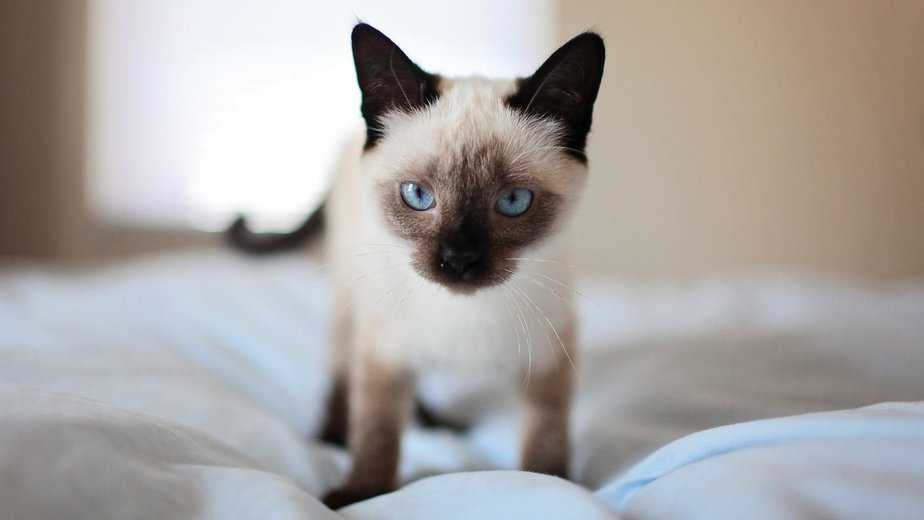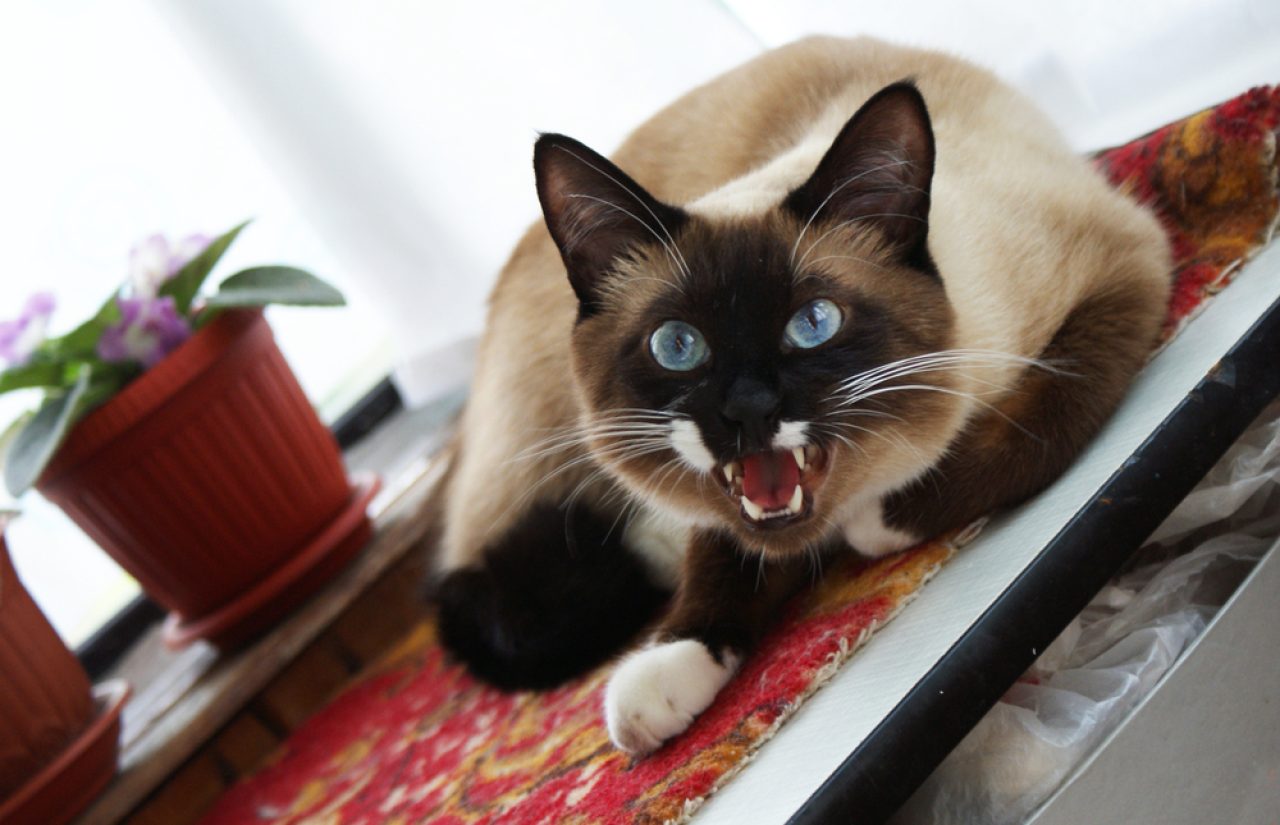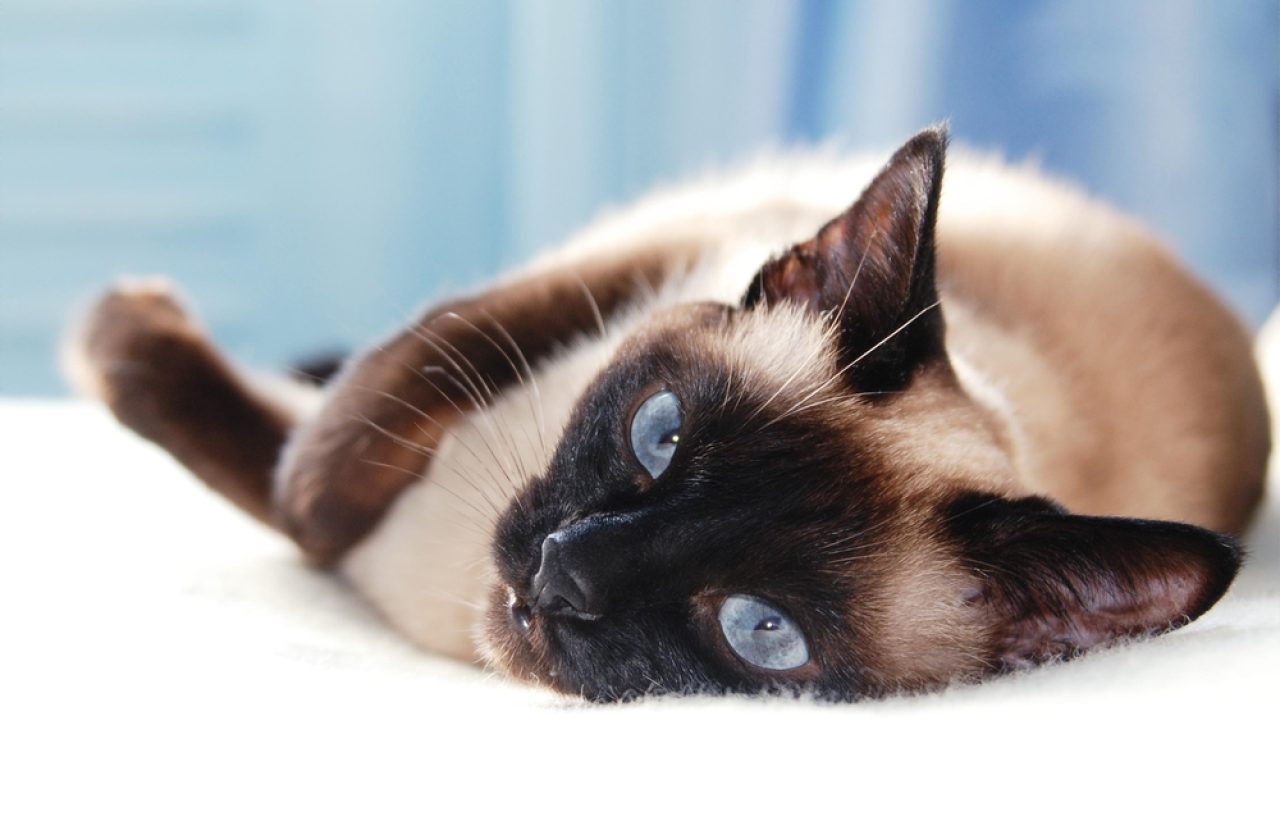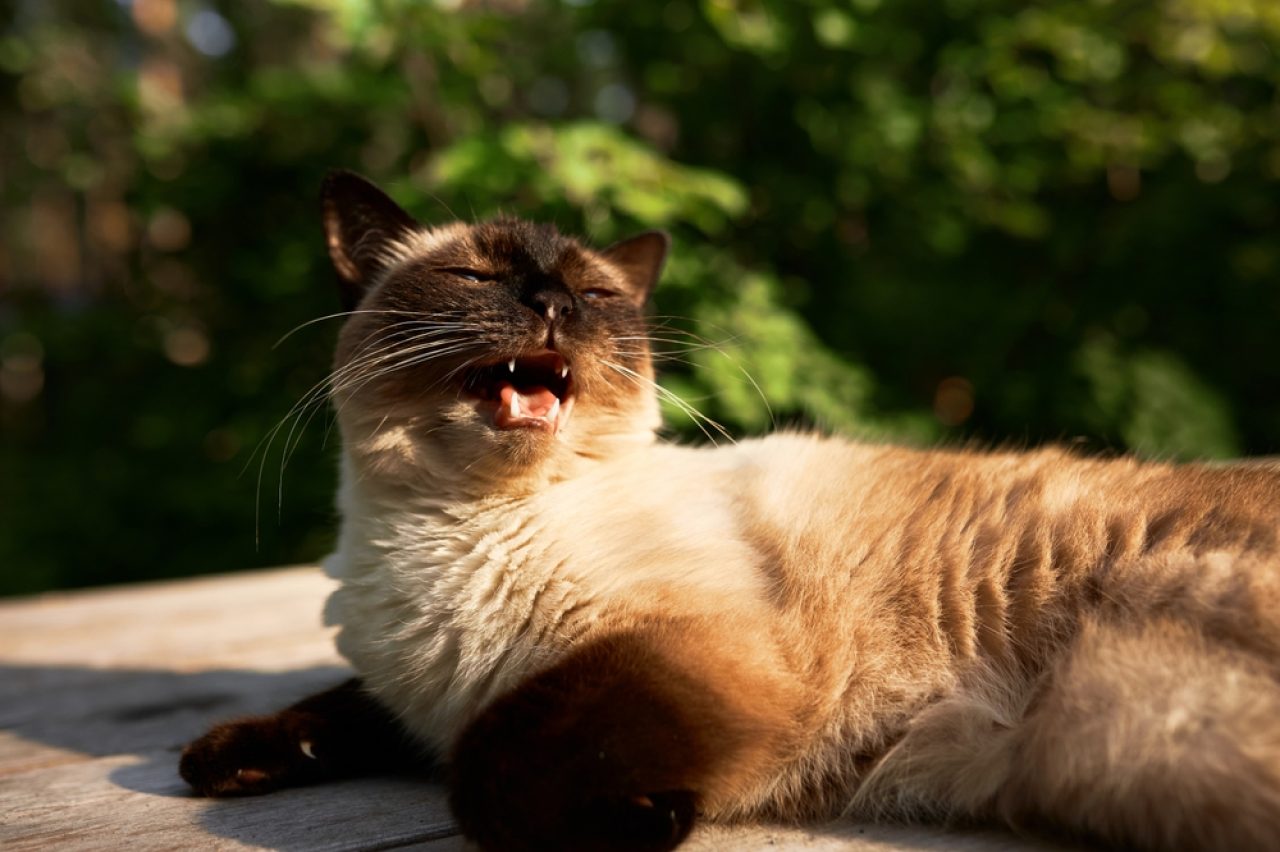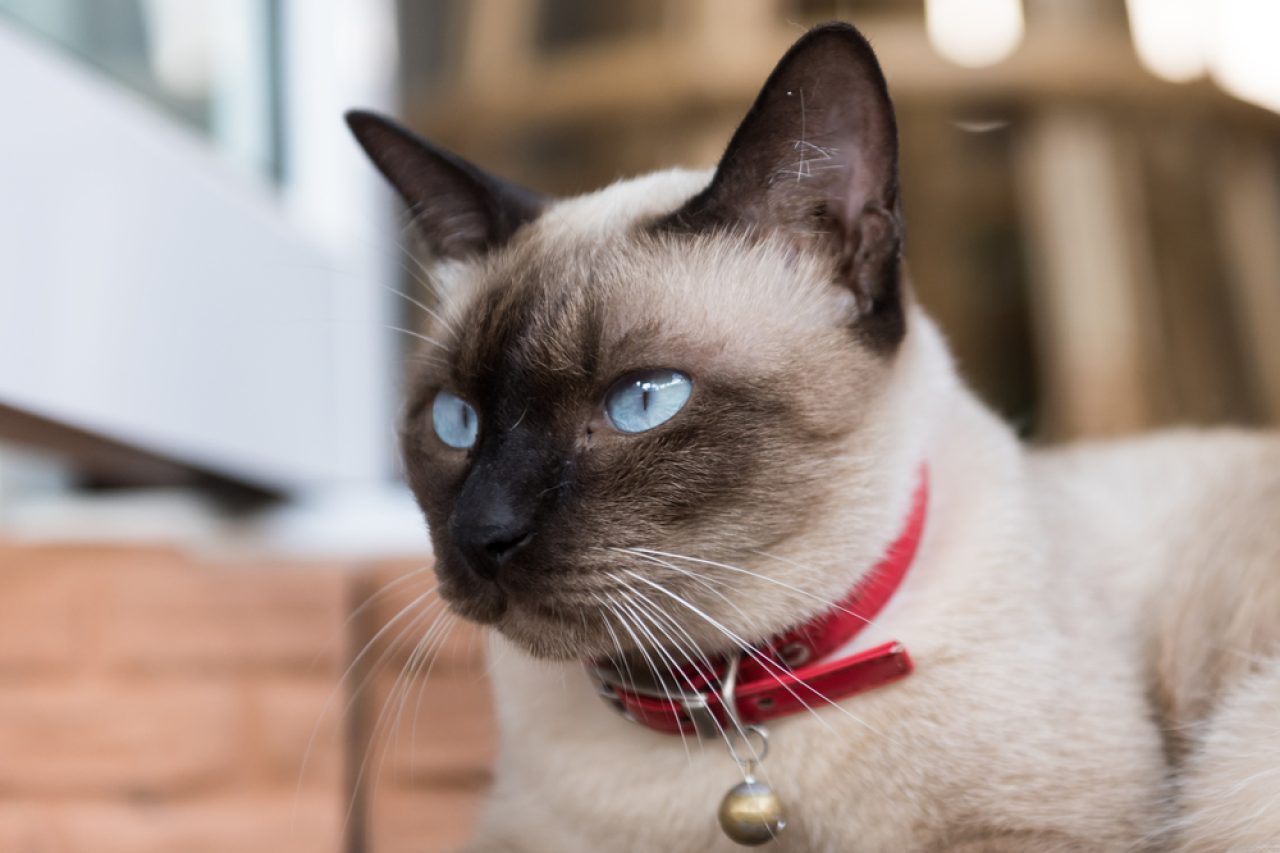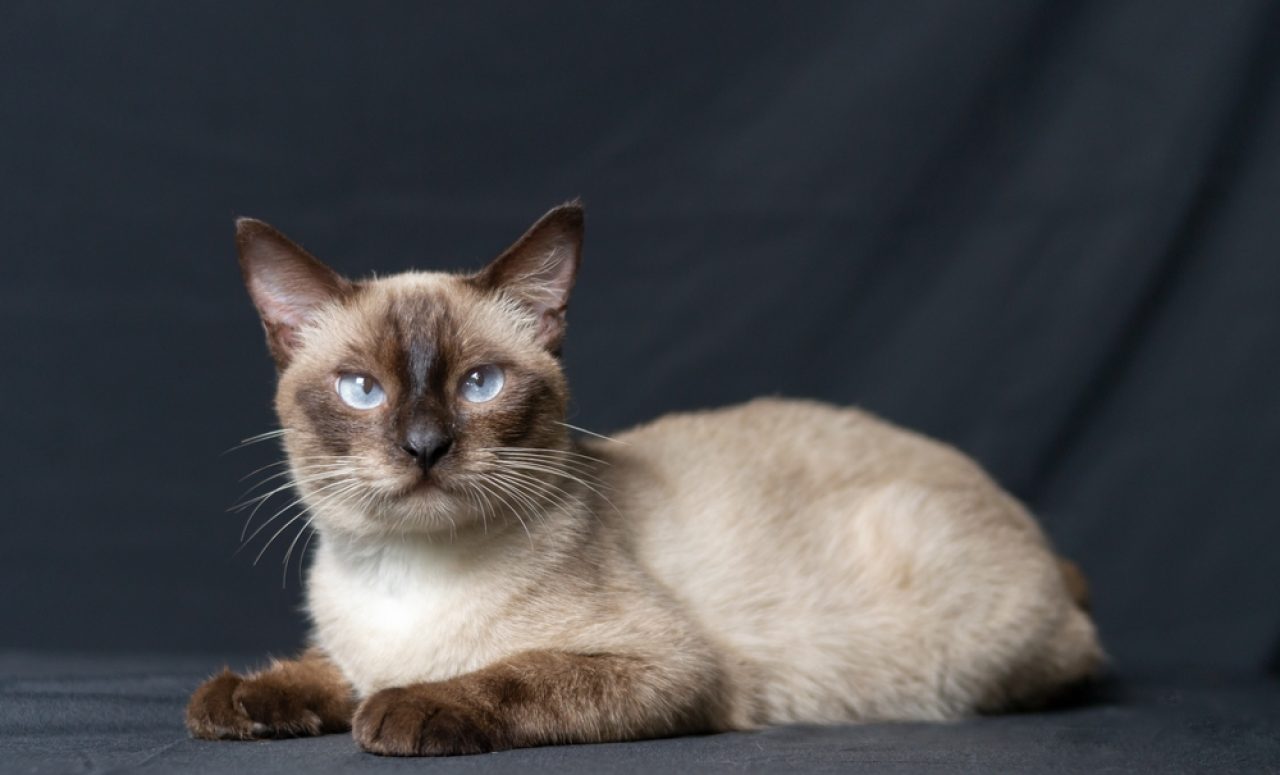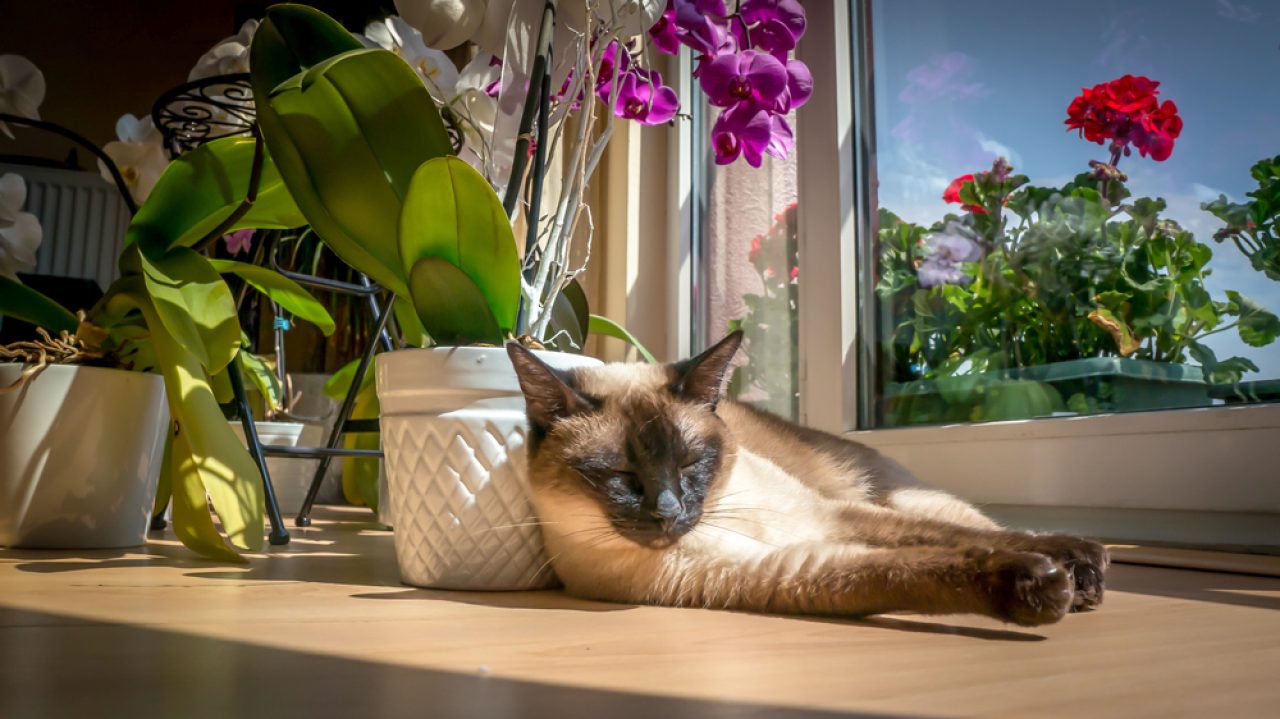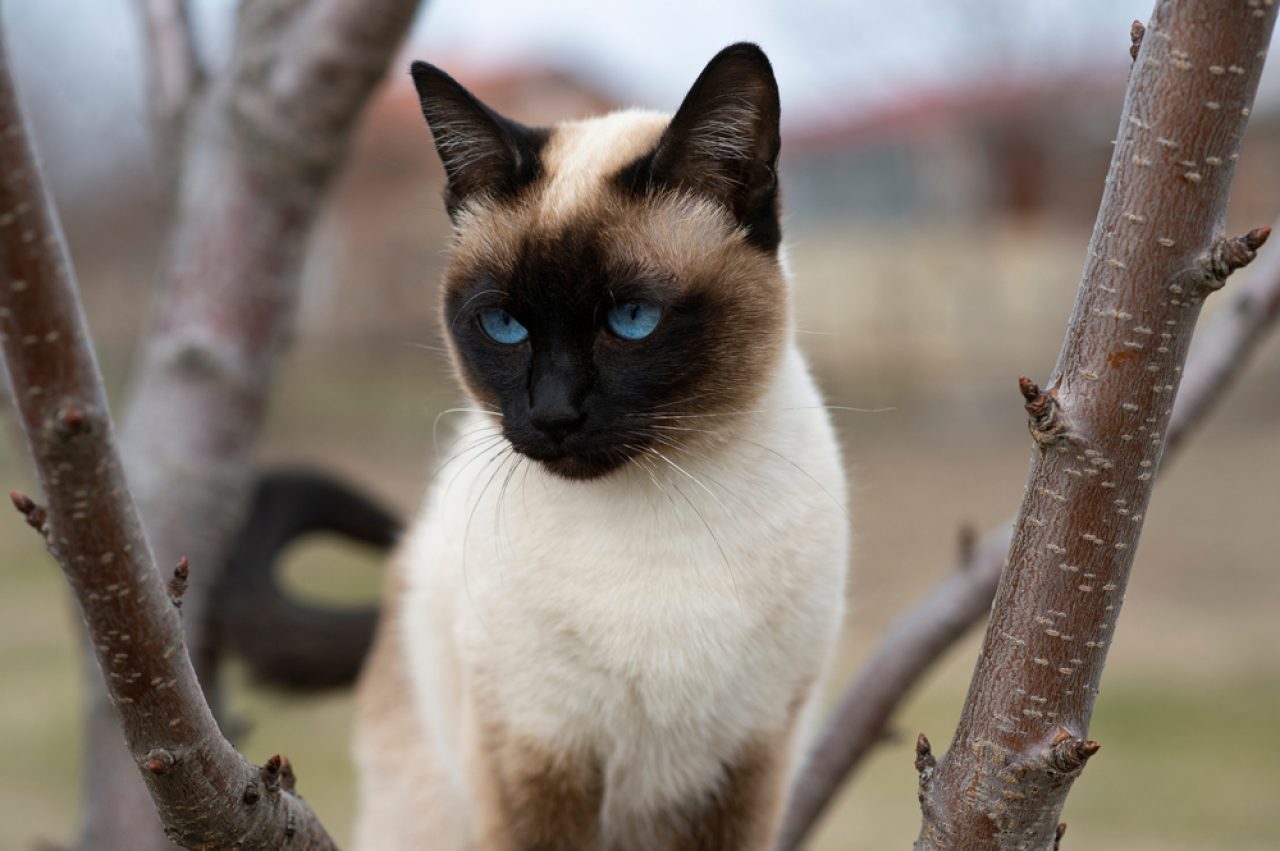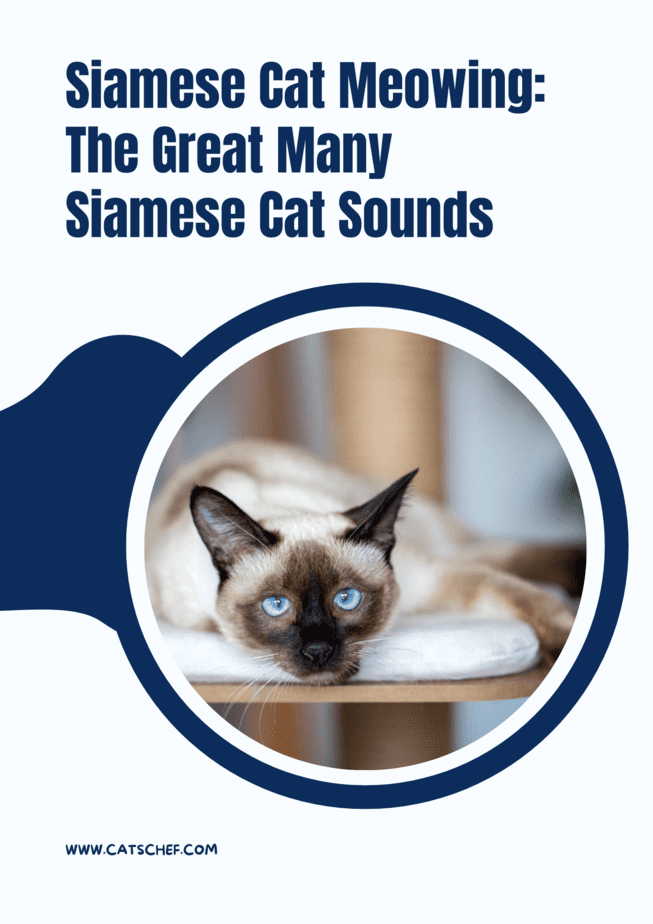📖 Table of Content:
“Why is my Siamese cat meowing all the time? I don’t know what to do!” might have been the longest search your Google account has ever witnessed. But, you were not about to turn a blind eye to the fact that everything everyone has ever told you about cats turned out to be true – they’re real trouble!
We understand that cats aren’t always portrayed the way we see them. More times than not, humans talk about puppers being affectionate, cuddly, and snuggly. On the other hand, cats are the ones that take the short end of the stick and collect the “they hate everyone” and “they’re cranky” comments.
We’re not even surprised you came here annoyed because of something negative somebody told you about your precious purrincess. Oh, we can nearly hear the double-edged remarks about how Siamese cats don’t like spending time with humans or how they scratch the furniture or meow your ears off.
And, needless to say, now you’re freaking out because your lovely little Meezer doesn’t seem to care about household rules. But, you need to understand that Siamese cats are pretty much the Huskies of the feline world. They’re talkative because they’re not afraid to express their opinions around you.
As a matter of fact, a great many sounds of Siamese cats are a force to be reckoned with. And, we’re here to help you decipher and understand each and every one of them. Many people rank snuggling with a talkative, purring fluffer as one of the greatest things in the world. Why would this be any different?!
Why are Siamese cats the way they are?
Oh, the lovely Siamese beauties! The mysteriously good looks combined with addictive purrsonalities make for the purrfect of pets – when you’re willing to get over the fact that these bad boys meow your ears off daily. Turns out not a lot of pet parents understand how vocal these frisky felines can get.
Sure, they’re clever, bright, and absolutely adore hanging out with humans. And, they possess such charming purrsonalities that most humans turn a blind eye to the fact that they have to get up at 3 a.m. to have a conversation with the feline member of the family.
As luck would have it, they won’t shy away from voting their opinion on the food you give them, the bed you make for them, the toys you buy, or pretty much anything else.
But, before we get down and dirty discussing every single sound they make (and what each sound means), take a look at some of the characteristics that make Siamese cats royalty of the feline world. Quite literally, these beauties used to be appreciated by the members of the royalty!
1. Hisstory
Now, you might be wondering whether the fact that your Siamese cat won’t stop meowing has anything to do with her ancestry. There is a chance that Siamese kitties came to England in the late 19th century from no other place than Thailand (formerly known as Siam).
And, while they were taking Asia by storm, they were pampered and highly appreciated by royalty. As it happens, even when they came to England, they continued enjoying that “high status” and were mainly sought after by the wealthy.
Here’s our theory – Siamese cats were probably granted the power to do whatever they want and they decided they wanted to be heard. And, being the oldest existing Asian breeds, they had plenty of time to practice what they preach. How convenient!
2. Appearance
Oh, don’t even get me started on the way these absolute Victoria’s Secret models of the feline world look like! With the royal background and the long, muscular limbs, no wonder they became one of America’s most popular breeds (America sure loves her supermodels!).
On the off chance that you’ve been living under a rock, Siamese cats are recognizable because of the way they look – and there’s nothing wrong with that. Now, these beautiful beasts sport a colorpoint pattern with dark fluff covering most of the face, ears, legs, and tails.
And, that darkness paired with ocean blue eyes makes for the most mysterious, elegant-looking breed (even when they’re a little cross-eyed!) But, not to burst your bubble, Siamese cats aren’t always cream with dark markings. They can be seal point, chocolate point, blue point, and lilac point!
3. Purrsonality
Here’s the thing, your Siamese cat might be meowing her day away. But, she’s absolutely adorable which means you have to forgive her, right? She might wake you up in the middle of the night or embarrass you when your friends come over. But, she’s the best thing that’s ever been yours and she knows that!
Siamese cats are affectionate and appreciative of everything you do for them (which explains why they became planetarily popular). They trust you to treat them like royalty because that’s how they see themselves.
They love hanging out with humans and work hard to earn the title “Velcro kitties” because they don’t shy away from following you everywhere you go. Who wouldn’t want to be a parent to such a charming little bundle of joy?!
Why is your Siamese cat meowing all the time?
Siamese cats are pretty much the opposite of the “scaredy cat” you might have expected when you decided to get your hands on one. Not only are they fond of meowing, but they’re not scared of showing you when they’re happy, sad, or angry.
Actually, they’re pretty much the opposite of your regular, don’t-ask-me-anything type of cat. Trust me, a Siamese cat will happily greet you with an excited chirrup the moment that you open the door.
She won’t think twice to scold you when you go to Target without bringing her with you. And, she won’t mind spending three hours of her time keeping you up-to-date on what she’s been doing while you were gone (causing trouble and knocking things down, of course!).
But, we understand that there are times when you simply don’t have a clue about why she won’t shut up! And, we’re bringing you a couple of common reasons why your Siamese might have taken it upon herself to hold a conference at 3 a.m.
1. They’re seeking attention, of course!
What other reason makes your fluffy friend grab your leg when you walk, rub her teeth on you, and meow your ears off?!
Siamese cats (and otherwise) don’t have that many ways of communicating with humans. They don’t speak English and you don’t speak “Cantonese”. Therefore, they use body language and sounds to communicate what they want.
So, when your Siamese beauty starts meowing out of nowhere, she’s probably demanding attention. Try petting her, picking her up (while making sure she doesn’t scratch your eyes out!), and snuggling with her underneath a blanket.
Trust me, Siamese cats adore when you baby them – that’s probably what she was looking for, anyways.
2. They’re happy and they want you to know that!
Here’s the thing, Siamese cats become outspoken from the moment they’re born. Siamese kittens make different sounds to communicate with the mother – to let her know where they are, what they want, when they need to be fed, and a bunch of other things. Turns out kittens have a lot to say!
When they grow up (or get adopted by a human), Siamese cats continue employing the same techniques. In fact, they use them because they think you can understand what they’re trying to say.
Little do they know you’re spending hours and hours of your day Googling “What does a long meow mean? What does my cat say when she lets out a chirrup?”.
But, to make your worries a little easier, Siamese cats do meow when they’re happy. They might meow when they see you at the door or when they hear that little rustle of the Fancy Feast. They might chirrup when they see a butterfly or when you cuddle them to sleep.
Don’t worry, meowing doesn’t have to be the bearer of bad news!
3. They’re sad and trying to communicate that to you!
But, meowing might mean something’s wrong. Depending on the type of meow your Siamese cat lets out, you might be able to understand whether she’s happy, sad, or uncomfortable with something. More times than not, a gruff sound coming out of her means she’s going through something bad.
On the off chance that you’ve never accidentally stepped on your kitty’s paw, you might not know the type of sound we’re talking about. But, that’s typically the type she lets out when she’s hurt, experiencing discomfort, or dealing with a health problem.
Whatever the case might be, make sure you check whether she’s happy and healthy before your friends trick you by saying that “Siamese cats are tough to deal with and dramatic.”. They’re not, your friends haven’t had the pleasure of parenting one of these beauties and learning how they deal with the world around them.
A list of sounds and meanings to help you understand your Siamese cat’s meow!
“Siamese cats shouldn’t keep meowing when you tell them to stop!” your neighbor who thinks dogs are a menace to society casually mentions while you’re sipping on coffee.
“Siamese cats aren’t that talkative! Maybe there’s something wrong with her!” your mom mentions while you’re on FaceTime with her (asking yourself while you even bothered answering).
Dealing with comments from people who don’t have cats (or don’t like them) can be extremely exhausting. Not only does that make you overthink and overanalyze everything you’re doing, but, also question your parenting style and your cat’s sanity.
Don’t worry, you’re not the only one dealing with hate comments and looking down on yourself because of them.
Siamese cats are very vocal and that’s a known fact! Learn how to decipher your Mezzer’s messages and observe how happier and healthier both of you become. There’s nothing better than snuggling and having a 3 a.m. conversation with your little fluffer. So, here’s what each of her sounds means!
1. Caterwaul
“Hey, you! Are you planning on feeding me today? Three minutes have passed since I woke up and I don’t see any food in my bowl! Hey, wake up and feed me!”
Siamese cats are dramatic! And, when you remember that your Siamese doesn’t shy away from vocalizing her needs, you get caterwauling!
Caterwauling basically sounds like howling. And no, your little fluffer isn’t turning into a werewolf. But, she might be turning into a grumpier version of herself. More times than not, when a Siamese caterwauls, she’s looking for food, water, or attention. Give her what she wants and she will go back to dreamland!
2. Chirrup
“Oh, there you are! I missed you!” – that’s pretty much what your Siamese cat communicates with chirrups (or chirps, whichever you prefer).
Chirrups are high-pitched, warble sounds that are very, very similar to sounds birds make when they’re singing. And, a little birdy might have told us that chirrups typically mean your kitty’s happy to see you!
You might catch your cat making these sounds when you enter the room, come back from work, or wake her up – she’s showing you how happy she feels when you’re talking to her, feeding her, or cuddling with her. Siamese cats chirrup a lot because they actually want you to know what they’re thinking about (unlike other cats).
3. Chatter
Chatters and chirrups sound alike, but they have nothing to do with each other! “Oh, there’s a little birdy outside! I might… be able… to catch her!” That’s pretty much what your little hunter thinks to herself when she’s making that sound – chatters are reserved for observing, stalking, and hunting prey.
That’s right, that adorable guttural sound seems to be your cat’s predatory ancestry telling her to snatch that bird off your window and chase after that butterfly.
As a matter of fact, you might notice the only times your cat decides to chatter are times when she notices somebody or something approaching her. She’s warning you that she’s about to attack!
4. Purr
Sure, your Siamese cat keeps on meowing your ears off and there’s nothing wrong with that. But, chances are there’s one sound she keeps on producing sound even more often than meowing – we’re talking about purring, of course! Siamese cats are queens of purring and for a good reason, too!
Turns out that the adorable little vibrating sound they produce doesn’t only serve as means of communicating. While Siamese cats tend to purr when they’re happy, comfortable, and content, they also purr when they’re trying to calm down, heal themselves, and feel better about whatever they’re dealing with.
To be completely honest with you, purring sounds like a superpower!
5. Low-pitched meow
And, we finally address the elephant in the room – the meowing!
First things first, meowing can mean a bunch of different things depending on the tone, the pitch, and the longevity (not to mention the circumstances!) So, we need to touch upon low-pitched, medium-pitched, and high-pitched meows before anything else.
Low-pitched meows are typically communicating how happy, safe, and secure your fluffer feels. She might make these sounds when she’s lounging on the floor, munching on her favorite Fancy Feast, or cuddling with you. And, she might paw at you and move her tail from side to side (a familiar wagging motion!).
6. Medium-pitched meow
Now we’re getting somewhere! A medium-pitched meow doesn’t necessarily express happiness or sadness. Rather than that, such a meow communicates that your Siamese needs something from you – whether that’s food, water, attention, or something else.
Maybe she produces a meow that sounds like that when she’s standing outside your bedroom door waiting for you to open them. Maybe she produces that meow when she’s rubbing her teeth on your thigh, wanting to snuggle.
Whatever the case might be, she’s definitely looking to get something out of you. And, she’s not stopping unless she gets whatever that might be!
7. High-pitched meow
And, to everyone’s demise, a high-pitched meow means something’s wrong. Is your Siamese cat meowing like there’s no tomorrow? And you recognize that she’s making the screaming sound rather than the annoying one, you’ll want to get to her ASAP.
More often than not, cats meow like that when they accidentally hurt themselves or when they’re surprised by something. And, when they keep making that sound whenever you pick them up or play with them, there’s a possibility they’re dealing with a health problem.
A high-pitched meow might be a reason to schedule an appointment with your vet.
8. Long and short meow
Last but not least, there’s a difference between the meaning of a long meow and a soft, short meow. Sure, both of these carry a positive message. But, there’s a slight difference in the meaning you might want to keep in mind.
Siamese cats produce a bunch of different sounds, and being able to differentiate between the sounds is impressive!
So, when your Siamese cat produces a long meow, she’s probably communicating that she’s happy with something she had done. Maybe she has managed to catch that butterfly she’s been chasing after for the past half an hour. Maybe she has learned how to open the cabinet with cat treats. Whatever the case might be, she’s proud of herself.
On the other hand, when she produces an array of short meows, she’s comfortable, safe, and secure. More times than not, Siamese cats do that when they’re cuddling with you or lounging on the floor, enjoying life as the royal kitties that they are.
9. Growl
Everything’s nice and dandy when your Siamese cat keeps on meowing (she’s doing her thing, right?) But, when she keeps on growling and howling her day away, you might be dealing with a Meezer with some serious anger management problems.
When she produces that growling sound, you can be pretty positive she’s scared, threatened, or annoyed by something or somebody. Word of advice – you don’t want to surprise her or touch her when she’s going through an aggressive outburst.
Wait for her to settle down, and then try to comfort her (unless she’s in immediate danger, of course!).
10. Hiss
Repeat after me: “Do not under any circumstances hiss back at your cat!” While hissing back at your cat, licking her, or biting her ears might be a trend on TikTok, you don’t want to do anything of the sort when you’re dealing with an annoyed, aggressive kitten.
Siamese cats resort to hissing when they’re very, very angry. Whether you’ve done something to annoy them or they’ve annoyed themselves, you might want to leave them alone for the time being. Let them calm down and come to you when they’re ready.
Don’t mess with a kitty that’s clearly distressed unless you want to look like Scarface for the rest of your life!
